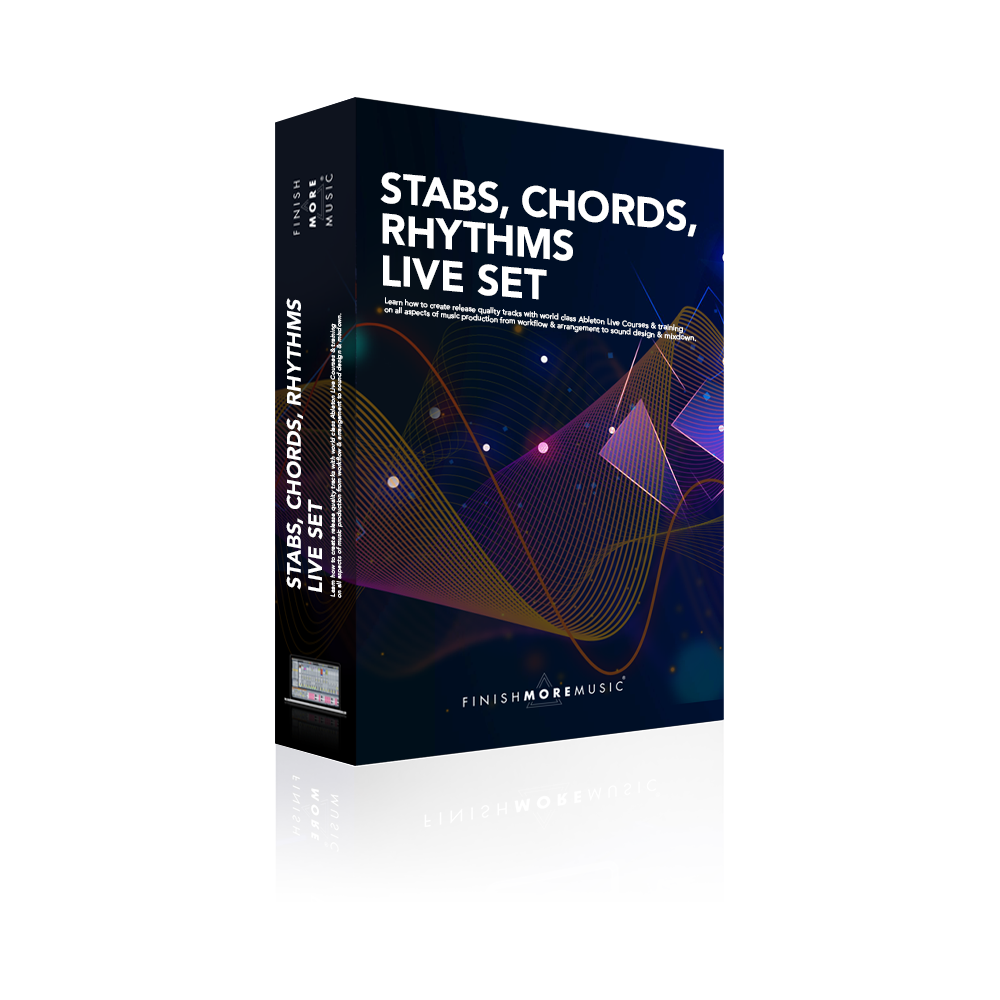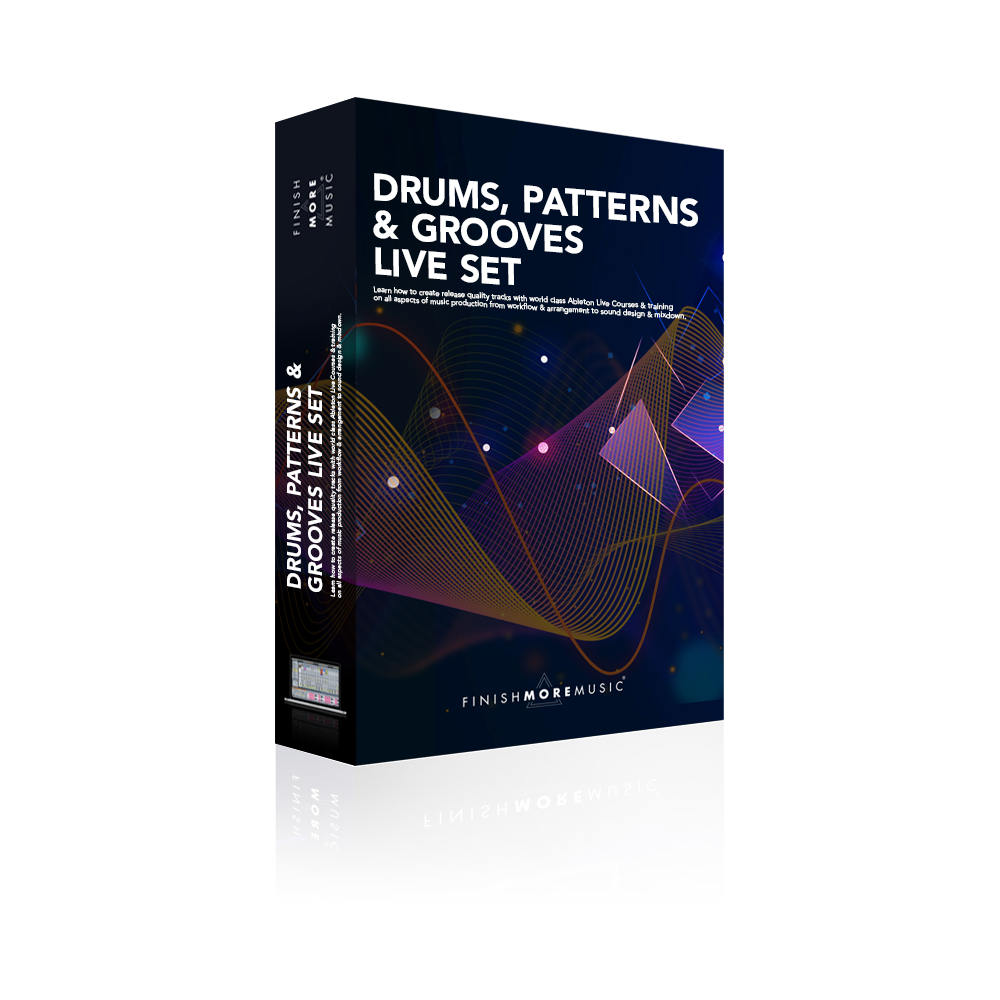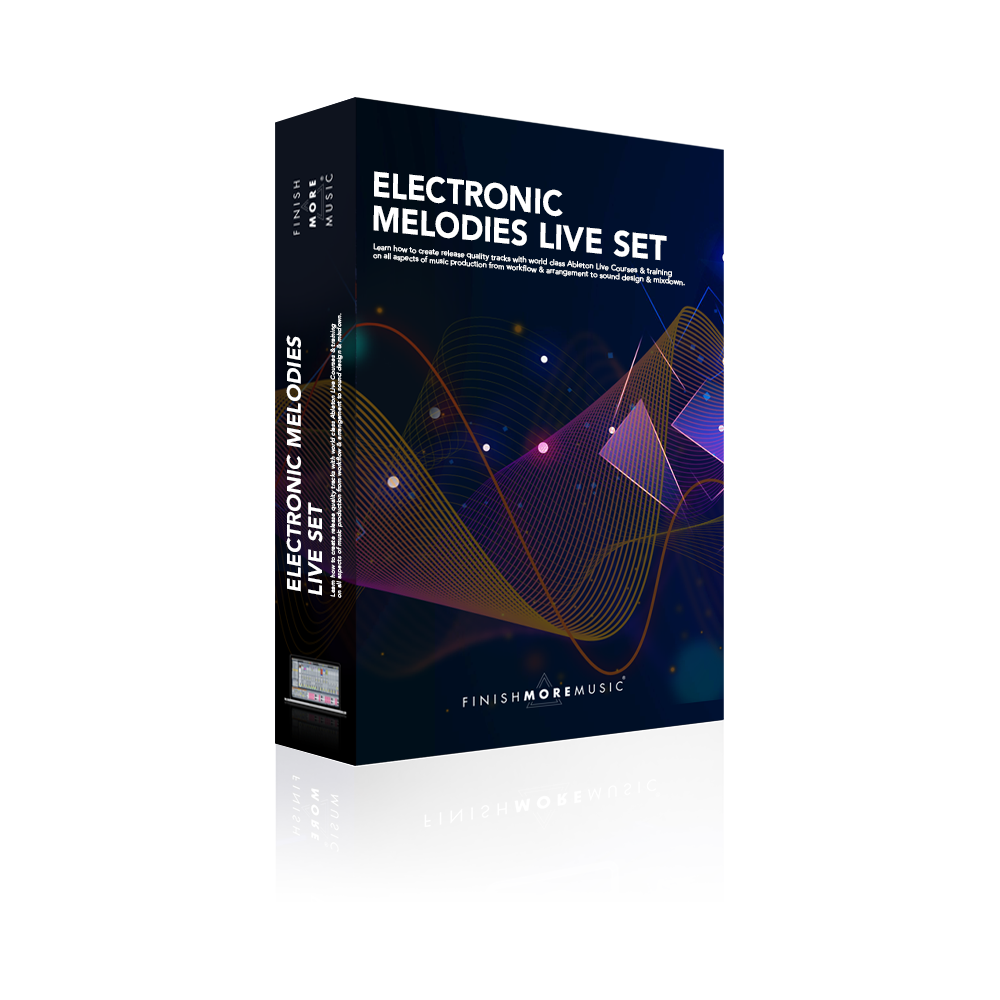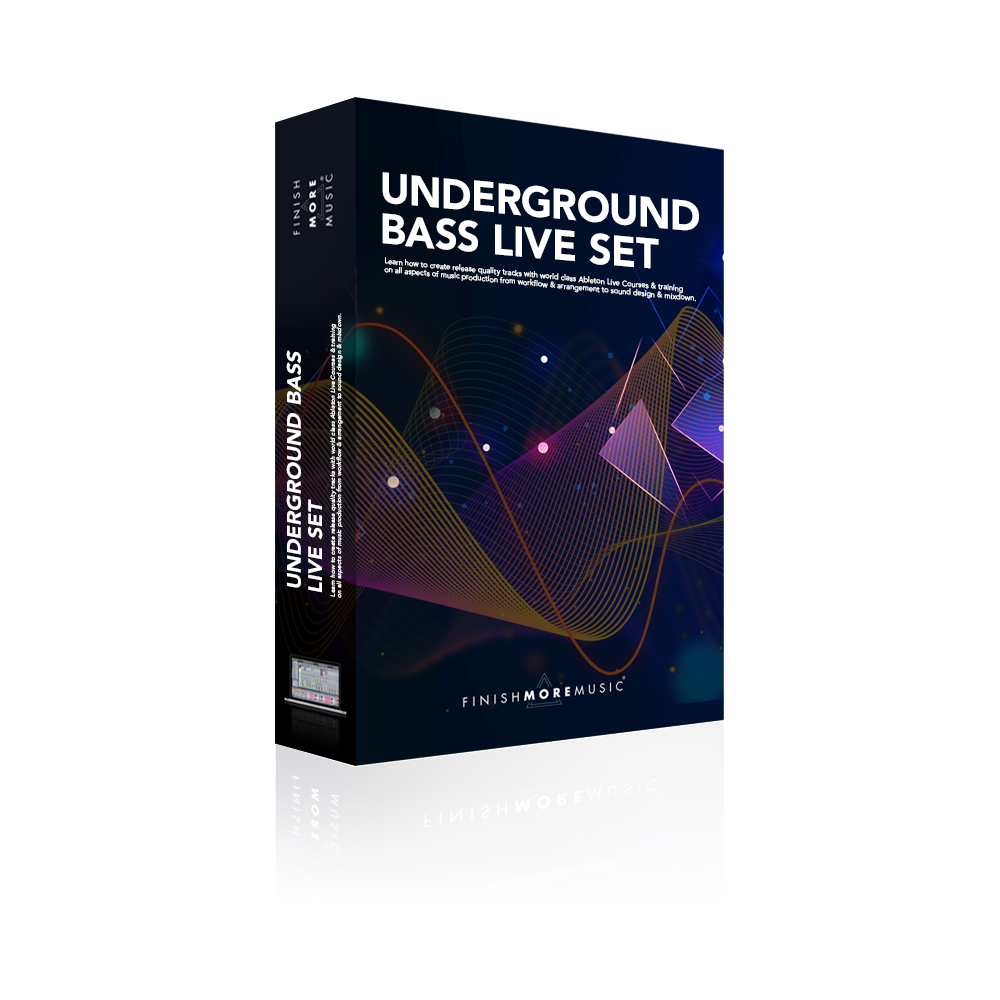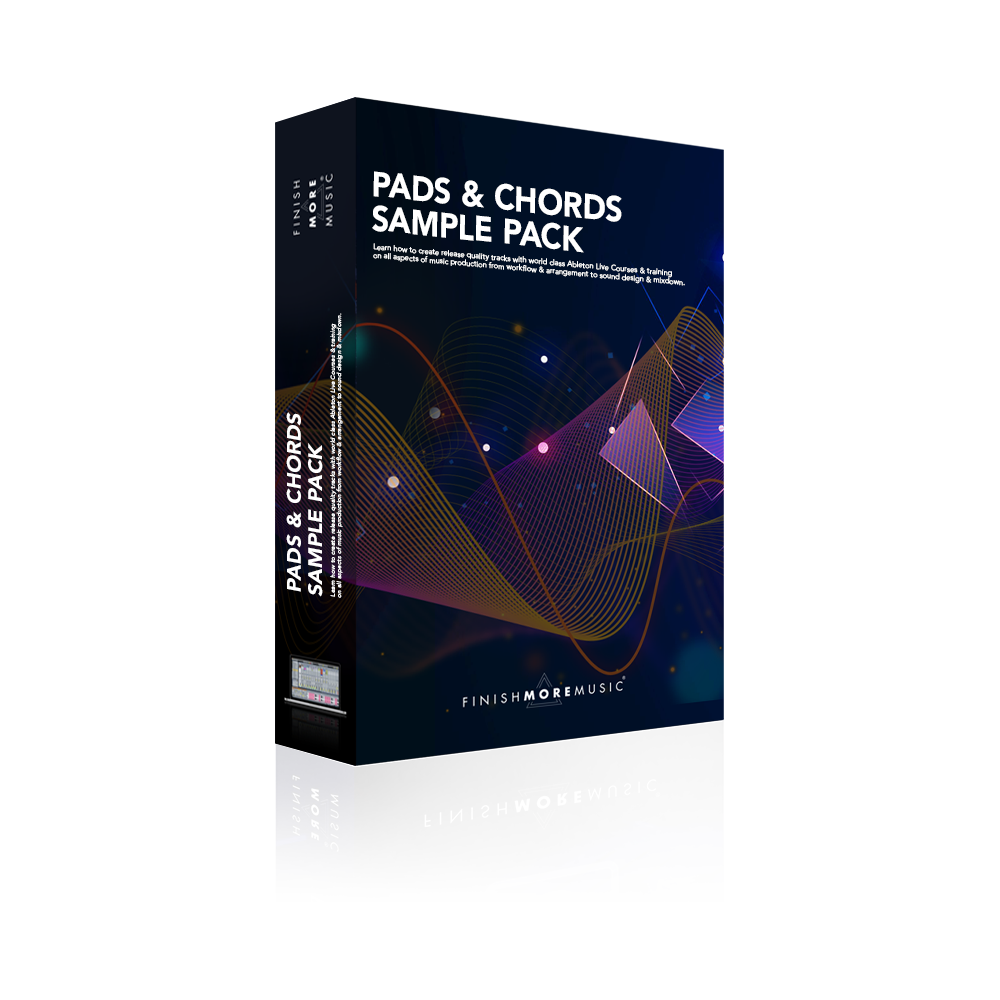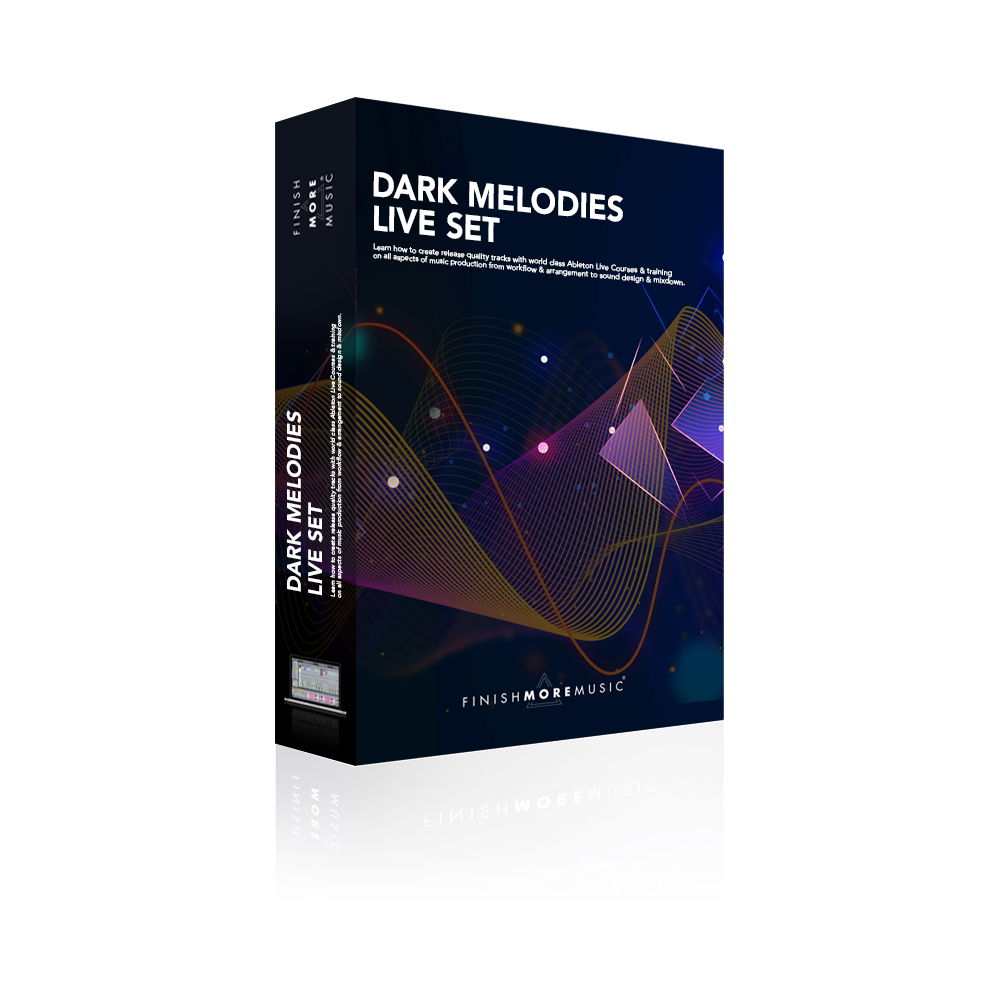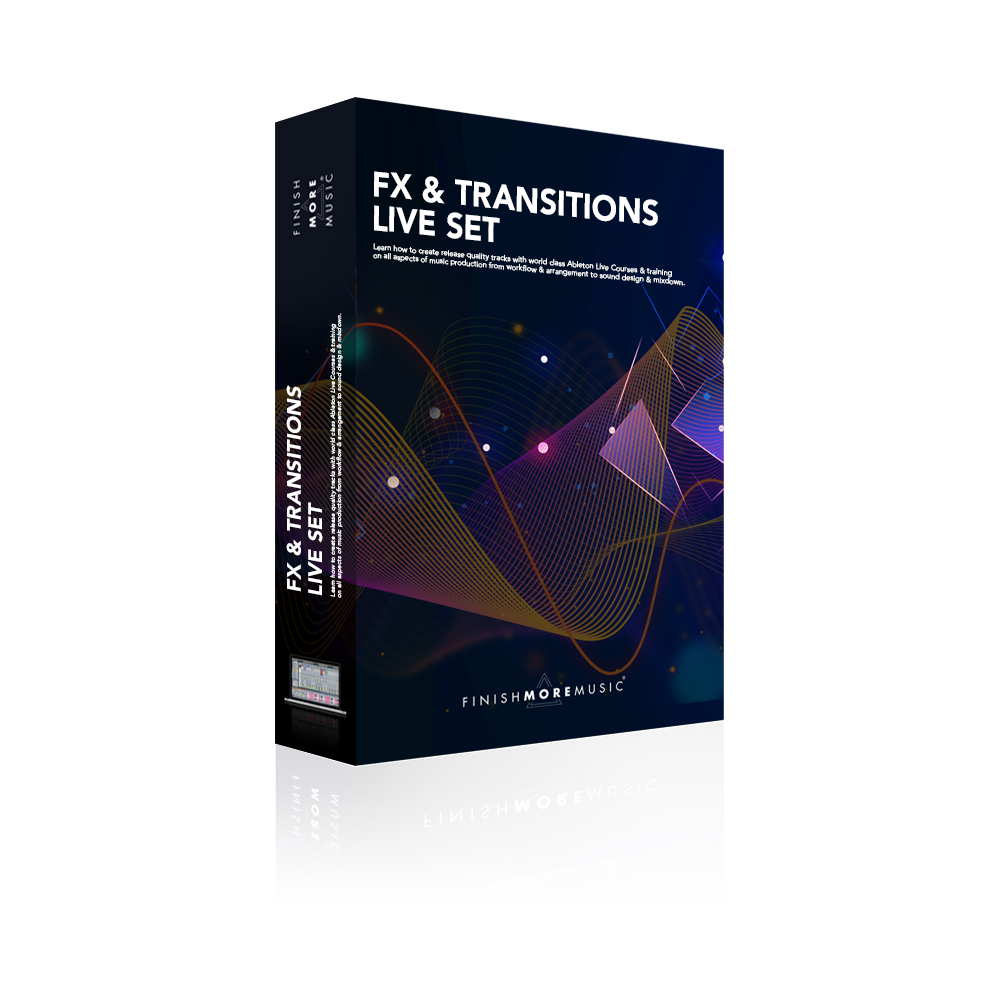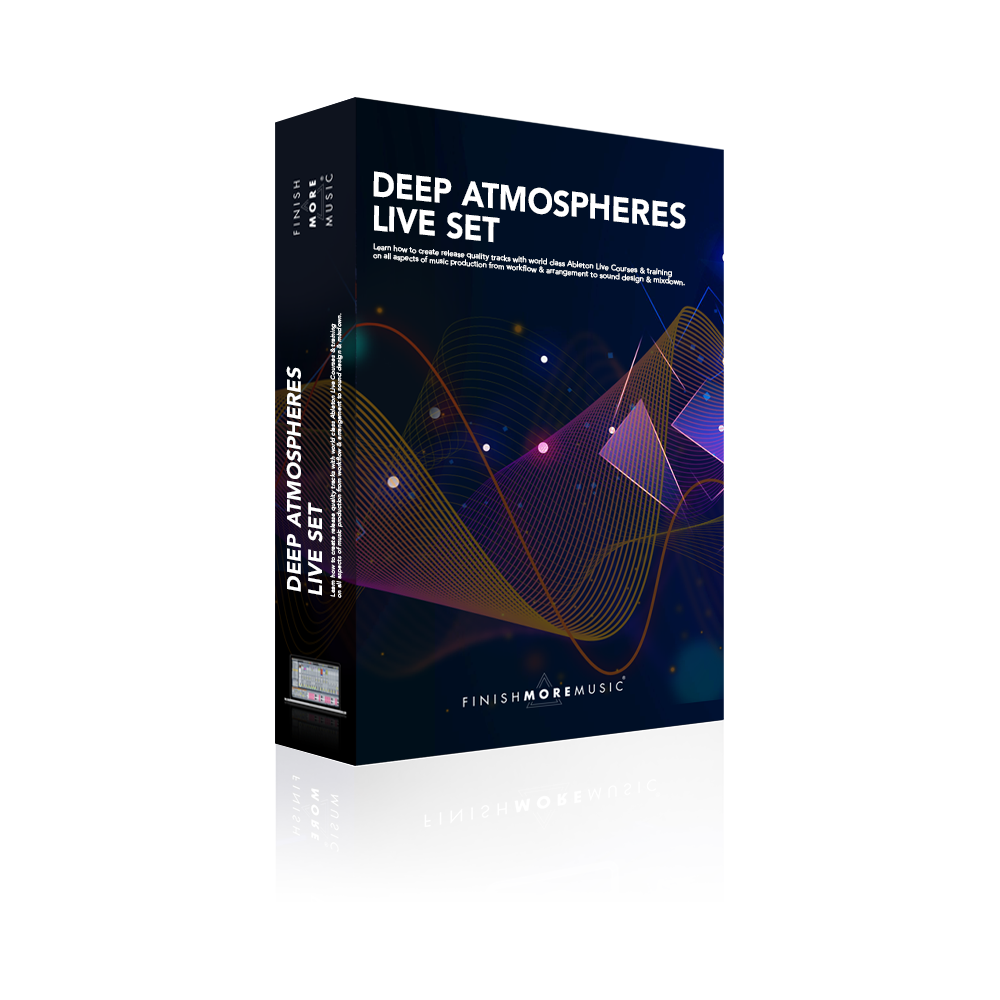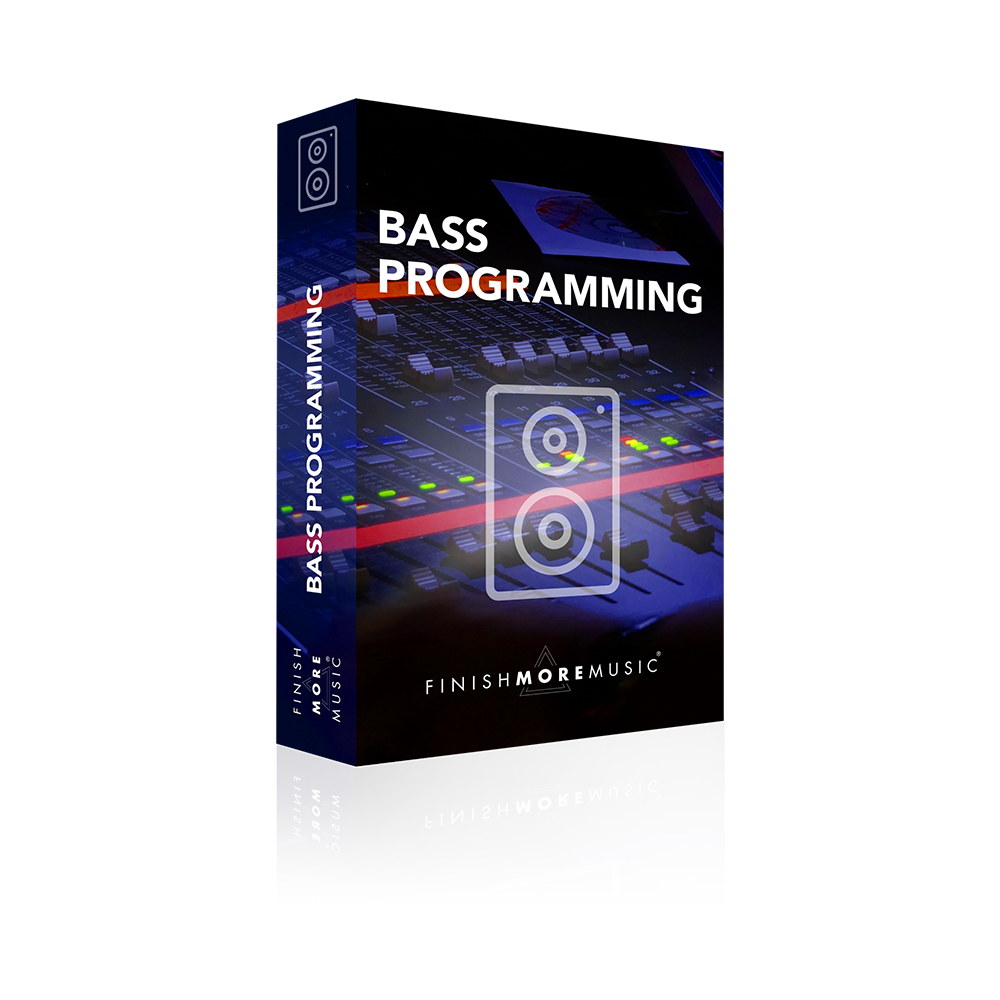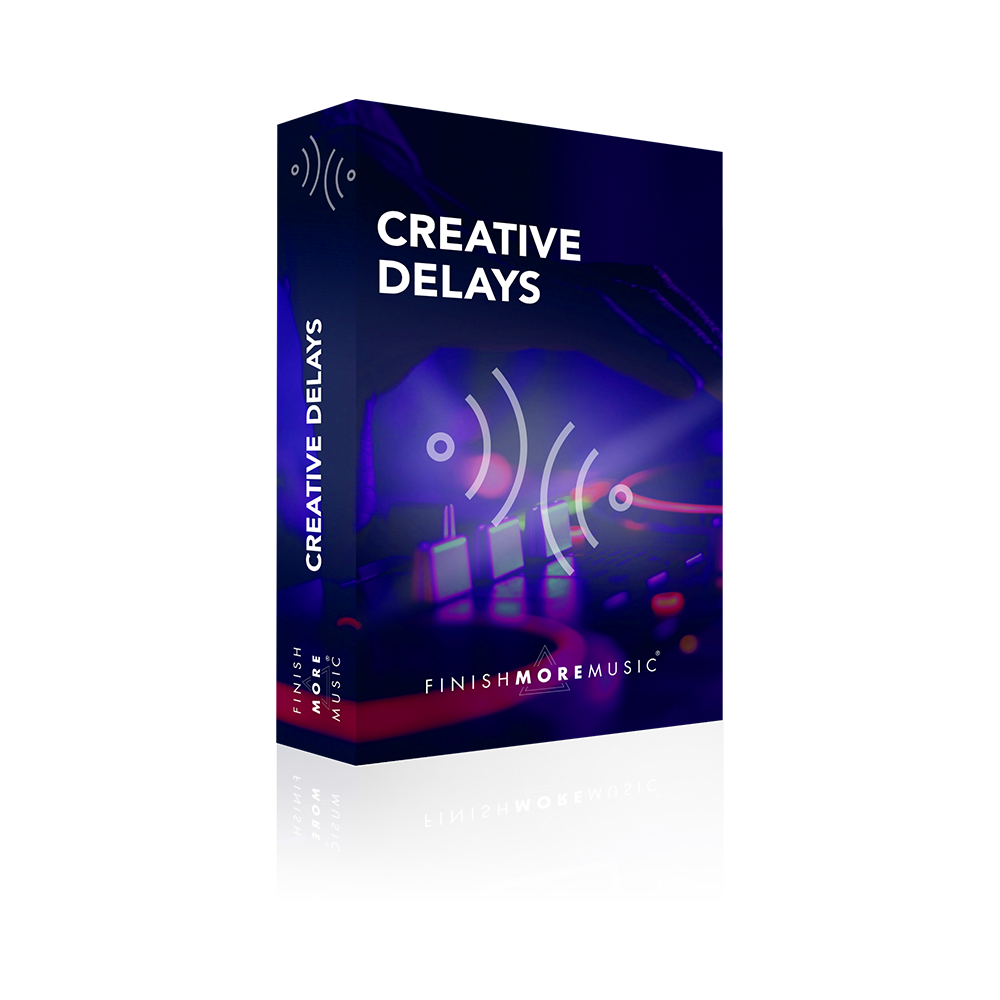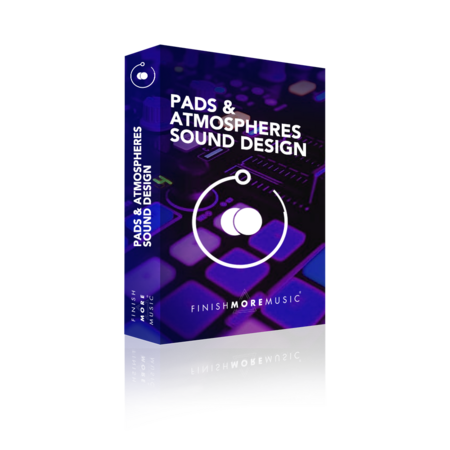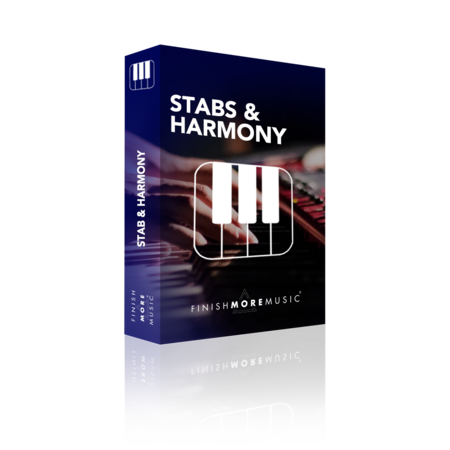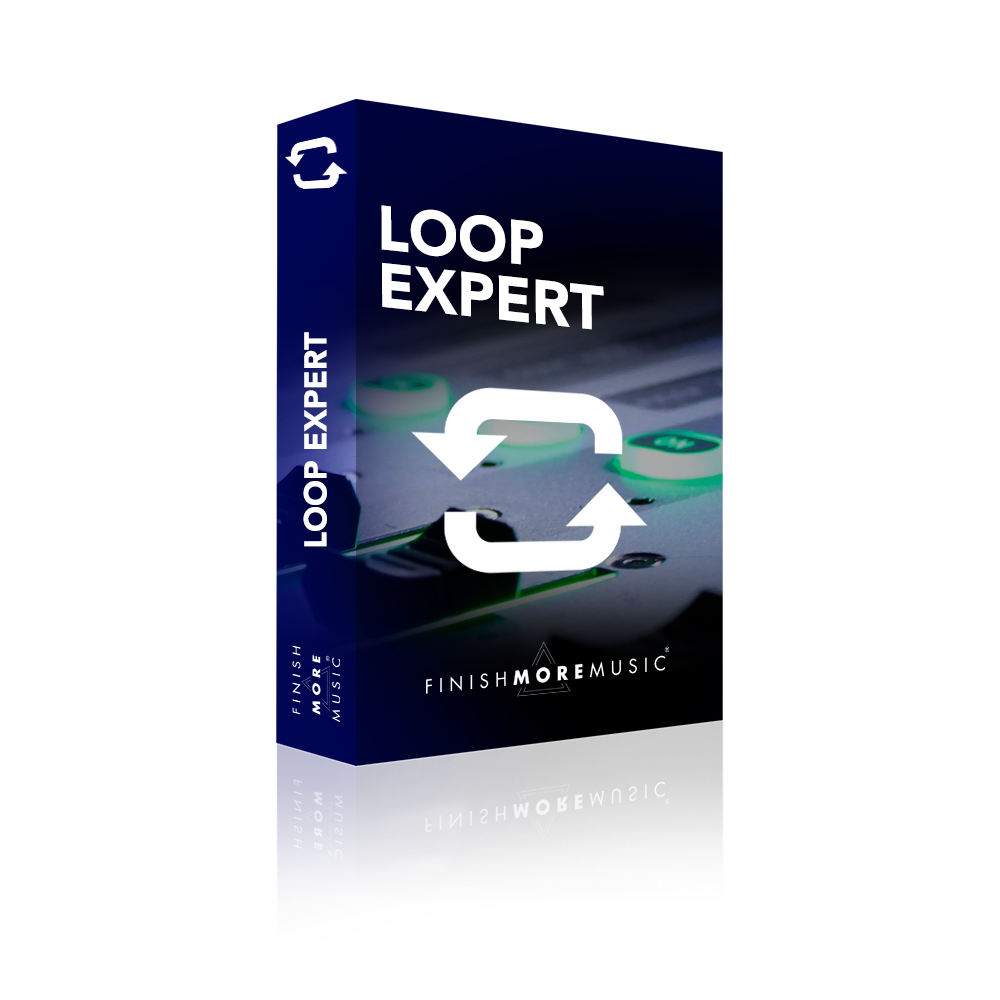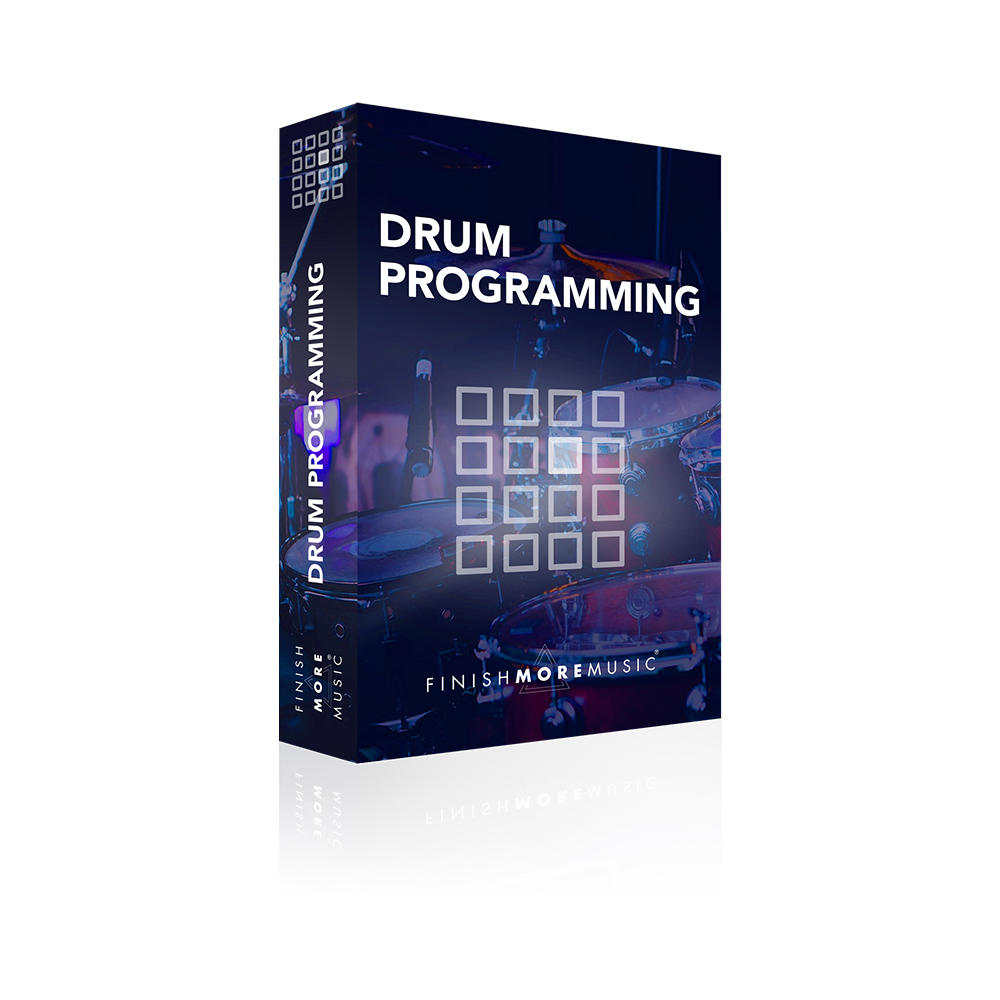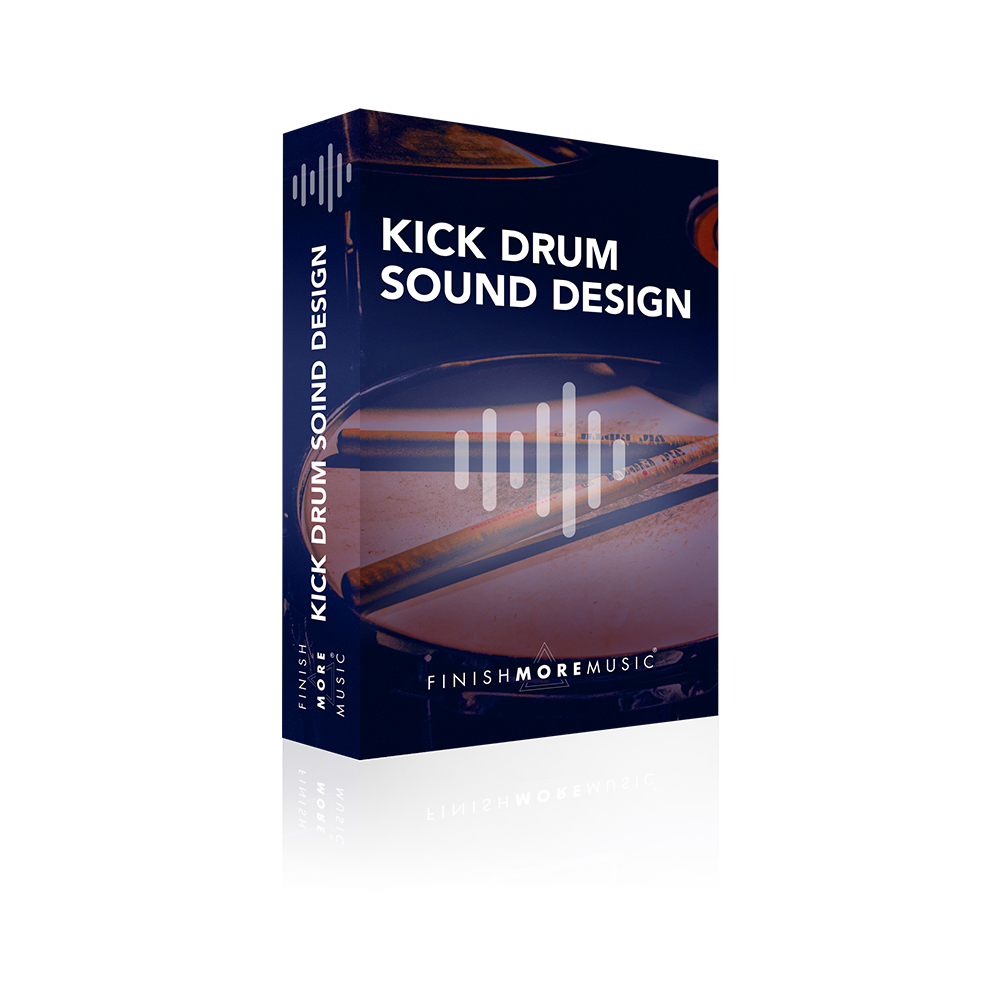Hi, I’m Keith Mills, and this is Episode Number 73 of the Finish More Music podcast. And today we’re going to be talking about the concept of finite and infinite games, and importantly how this concept will empower you to create much more freely in the studio and with a whole lot more fun. Now, I see so many producers putting themselves under unbearable levels of what is to be honest, relentless pressure in the studio and it crushes their creativity and really drags them down.
Now, unsurprisingly, this leads to avoidance and less time pursuing the one thing that really lights them up in their life, writing music. In this episode I’m going to share a perspective that cuts through this pressure with ease. It makes writing music much lighter and a more energizing experience and it will ultimately help you to get a lot more done and have a lot more fun doing it. Let’s get stuck in.
This is the Finish More Music podcast, a show for underground dance music producers who want to finish more and better music and to share it with the world. My name is Keith Mills, every week we’ll dive into the mindset creative strategies that will help you to move further and faster along your music production journey.
Hello, and thank you for joining me for another episode of the Finish More Music podcast. So we’ve got a slightly interesting and a little bit left field of a topic to explore today. And it’s the concept of finite and infinite games. This is something that I came across a while back, but it was a video that I watched recently that got me thinking about this and creativity in general and the creative process that we follow in any art field, it doesn’t just have to be music. And then to the broader, more holistic, all our life kind of vibe. Now you will know that a lot of the things that I talk about on this show are things that affect general life and not just mere creativity and not just music production.
And that’s because everything that we do affects everything else, right? If you think about it, your health affects, your relationship affects, your art affects, your work, they’re all interlinked. If you don’t take care of your health, if something goes wrong and you get some illness, God forbid, and that takes you out the game, everything else goes as well. You’re not working, you’re not creating, you’re not able to foster your relationship, take care of your family, all of those things. And we can point to any things in our life and pretty much say if we drop that plate it has usually a large knock-on effect to the other areas, the other plates in our life.
This particular concept, finite and infinite games, you can apply this to life in general. I’m going to tie into creativity. Let’s get stuck in first of all and understand what I’m even talking about here, what the concept is. Well, there are two types of game. There is a finite game, which is a small game a short period of time. Has a start and an end very clearly, has a specified outcome and there are winners and there are losers.
You could think of this as, for example, a single game of football or any sport you want if football is not your thing. This is a single match, is played over 90 minutes plus some bit of extra time. And at the end of it there is very definitely a winner or loser or potentially a draw but if we were talking about a cup final there’s going to be a winner no matter what, and there’s going to be a loser no matter what. That is a finite game.
Now, in contrast an infinite game is a game that has no end, no specified outcome, and the goal of the game is constant improvement. The goal is to be the best player that you can be. We could think of this as the game of football, not a game of football but the game of football. Because if you think about it, no one has ever said, “Football is ending in,” whatever, “2026. Football is ending in 2026 and whichever club has over their history got the most medals and the most cups and the most trophies you win the football and that’s it. We’re never playing football again.”
That is the difference. The infinite game is about the journey and about becoming the best player that you can be, and the finite game is the small, definite winner, definite loser kind of vibe. Why is this important? I’ll use football, we’ll keep going down this road before I tie it really strongly into creativity. Let’s imagine the team loses the cup final, okay? What do you imagine the coach or the manager is going to be saying in the dressing room afterwards? Because it’s their job to pick the team up. They might have another game in a week, as little as a couple of days sometimes.
If they’re looking at this through the finite game lens where, “This is a catastrophe, we are losers. We have lost, it’s all over,” it’s going to be pretty hard to pick themselves up and it might feel like that in the moment. But it’s his or her job to come into that dressing room and put this into perspective. To put this into this perspective of, “We didn’t lose at the game of football, we just lost this particular cup.”
They’re going to be saying things like, “Look, we’re going to go again.” This hurts, this stings right now and that’s normal. That’s good, it’s part of the journey of life feeling all the highs and feeling all the lows, we want the full range of emotions. We often now don’t want to be anxious don’t want this… Actually, we do. We want to feel everything, right? You are alive, you want to feel every possible emotion and feeling that is available to you. So it’s a part of the journey.
“We’re going to go again, we’re going to analyze this match. Some of the stuff that happened in this match were spectacular. We did brilliant. We hit some of the little goals and the things that we set out past completion. And Bob’s dribbling was amazing.” I could probably think of a better name for a footballer than Bob. But you know what I mean? “Mane’s dribbling was incredible. And yeah, we made a few mistakes. There were a few errors, some stuff went wrong. They were better than us in certain areas, we’re going to analyze that, we’re going to get better. We’re going to hit it on the training ground and when that next game comes around, we are going to be stronger, faster, fitter. We’re going all in.” Think about that as a message, right? Really, really powerful.
Now, likewise before the game, if this game was also treated as part of the infinite game, the journey, the be the best we can be, the message and we often hear this from coaches in again any field, boxing, whatever you name it. There’s this idea of go out there and have fun, express yourselves, give it your best shot, give it everything you’ve got. Not “If you fail at this you’re all losers, you’re all dreadful you’ve got to win this thing.” Because that just keeps the pressure on and it crushes people and it stops them from being able to perform at their best.
Now, we can totally relate this to art and creativity. I love this quote from Sarah Lewis, “Masters are not experts because they take a subject to its conceptual end. They are masters because they realise there isn’t one.” There isn’t an end, right? You can’t win at the game of art. You can’t win at the game of music. You can’t put your hand up and say, “That’s it, everybody stop I’ve won. I’ve won music, no more music.” It doesn’t work like that.
And a creative, someone who thrives on creating things and bringing new and original ideas into the world knows there’s always more to learn. There’s always more to discover. They know that they’re going to score some goals. They’re going to miss some shots, they’re going to fall over their own feet, they’re going to score own goals. But the whistle never actually blows, there’s never an end to being a creative. There’s never an end to music. They play the game because they love it. They play to keep improving, to keep discovering, to keep learning new things to become the best player that they can be and to express as many ideas as they possibly can.
Here’s the main point of this before we dive on. And I think this is the takeaway to write down. This is the number one thing to hold on to. Imagine how light and how energizing it is to always show up and treat your creative process as a game, and as a game you can never lose. Think about that, a game, play, fun. Something to try out, something to toil at but nevertheless a game and a game that it’s not possible to lose.
Now, compare and contrast that. Think how different it feels to have the pressure of having to win everything in every moment. Like everything is a finite game and that’s all your tunnel visioned on. We can go back to our footballer and say, “They’d love to win every game.” Of course they would, it would be amazing, but it’s completely unrealistic and totally unhelpful to feel that they absolutely must and every footballer going on the pitch can’t possibly put a foot wrong or he’s a loser.
Losing is going to sting, is going to hurt. Nobody wants to lose for sure, everyone wants to win, absolutely. But if you view this specific loss, this specific miss, this specific mistake, whatever it might be on the football pitch, there’s just one moment, just one fleeting moment in an infinite game, in a journey and you put it into that perspective then it simply becomes an opportunity to grow and to come again stronger, it becomes a part of the journey. And this is one of the most common traits of professionals. They bounce back immediately. But not only that they’re free to express themselves right on the football pitch, to play with freedom, to stay motivated, to be driven for the next match.
Very, very important and it’s exactly the same with artists. If you treat every single track like it’s the be-all and end-all of the world, and it absolutely must be perfect, “I have to win this,” then think about the pressure, the oppression and how it stifles and crushes creativity. And that just makes it a miserable experience, that’s not fun, that’s not a game. That’s not a game you want to play put it that way, and it’s one you’re likely to avoid. If it’s all about failure, if it’s all about, “Ugh, if it’s not perfect I lose. If this doesn’t meet my expectations I lose.”
Whereas when it’s part of the entire journey and it becomes well, “That track was important to me and I hoped it was kind of turn out better than that but it didn’t and it took a bit longer than I’d have liked as well. I faffed about a bit and I got stuck over here and there was a bit of a bottleneck and I fell into that same trap again. This is not the end of the world, it’s part of my journey as a creative. And I’m going to grow from it, and I’m going to learn from it, I’m going to come back stronger to the next track.”
Same deal we see a lot with people comparing their progress to other people. It’s common that people look sideways at people who’ve started something around a similar time to them and compare their progress to the other person’s progress. But there’s two ways of doing that, right? Let’s say you start a course, maybe you’re a member of Finish More Music. You come in with a group of other individuals and at the end of the year, you look at some of them and you think, “Wow, they’re far ahead of me. I’m way behind them therefore I’ve lost. Therefore I’ve failed, therefore I’m not good enough.” Finite game mentality. How demotivating is that?
Versus, “Wow, they’re far ahead of me, that’s amazing. But look, there’s another year and another year. I’m going to give it my best shot this year, let’s see if I can catch up. That’ll be fun. What is it they’re doing? What have they learned I don’t know? If I reach out to them,” and I mean, this is one of the great things about Finish More Music is that people do reach out and the people further ahead go, “Yeah, look I’m doing this. This is what changed it all for me.”
But rather than holding this like, “Oh, I’ve lost,” be like, “Wow, how do I get to that level? How do I even overtake that? How exciting? I’m going to go into the game across this next year, this part of my journey and see what I can do, see where I can improve and we’ll see where we are at the end of it. And even then it will just be another amazing year in a part of this exciting journey that I’m on.”
Another big one for you. Any single walk of life is setting goals, so important. I talk about this loads on the podcast for you. I set goals over a 90-day period, so three months, right? I do the same with every single member of my team. In fact, our entire goal as a team is always divided into 90-day goals for across the entire year. I do this with everyone that I coach and mentor as well. We work to 90-day goals. And I emphasize so much that it’s a part of the journey and that we set the goal, but really the win more than hitting the goal, in fact way more than hitting the goal, the win is in the learning, the growth, the development, and being a very different person at the end of the 90 days to the person you were at the start.
Because if that person is stronger and better and more equipped, it doesn’t matter if we miss the goal. The goal was an arbitrary number we plucked out of thin air anyway, right? Sure it might have some intelligence, the educated guesswork behind it but nevertheless the goal is just the direction. So give an extraordinary level of effort to it. And here’s the deal. If we get halfway towards that goal and the person is like, “Oh man, I don’t think I’m going to hit it.”
Here’s where the finite infinite games thing comes in. If that’s a finite game and not hitting it means you’ve lost, what are you going to do? Give up, stop right there. Miss all of that amazing potential development that you’ve got for the other half of giving everything you’ve got towards that goal. We know the goals, the right direction, we’ve planned out. We’ve got to learn by doing. Do the thing, have the power. Missing the goal doesn’t mean that’s it, you’re finished, you’ve got to stop, you’re out of the race.
You can’t create another piece of music anymore. “Team, that’s it we’re going out of business, we didn’t hit that one goal. We’re going to stop helping everybody with their music.” This is madness, right? Instead it’s like, “Okay, probably not going to hit that goal. What can I do differently that still might give me the chance of it? What if in a parallel dimension there’s another version of me that does go on to get the goal, what the heck are they doing?”
And then you just keep trying. And even if you think you’re a week out and you’re definitely going to miss it don’t stop and throw the week away because this is a finite game it’s not, it’s part of a bigger journey. Double down. Let’s make the most of this next week, let’s kill it, let’s knock it out the park so when I set my next raft of goals, the next things I’m going to aim for in the next 90 days, I’m the best version of me that I can be showing up for those goals. It’s a really important concept and I love it because it’s around the notion of games, the notion of play.
Now, here’s a really cool story for you. This is one that a guy, Simon Sinek, I think you pronounce his name, he’s like a motivational speaker, focuses a lot on business. And he took to a story about infinite games and finite games to do with Apple and Microsoft. And basically he was at a Microsoft convention. He was speaking there and the Zune MP3 player had just come out that Microsoft had released. And he was given one as a gift by Microsoft and told, “This is a million times better than the iPod Touch.”
And sure enough he found out that it was, totally agreed with that. A little bit later a few months or so he’s talking at an Apple event and he gets in and shares a cab with an exec from Apple. And he said, “I’ve just been given the new Microsoft Zune and I’ve got to tell ya it’s a lot better than the iPod Touch.” The guy from Apple replies, “Yep, it probably is and that’s it. Yeah, maybe it is.” And that might seem like a strange reaction but Apple know that they’re in it for the long game.
Sure, the release of the Podcast on Zune may have been considered a finite game. Had a release date and who’s going to make the most sales and who’s going to produce the most effective product, but actually that’s just the release of a handheld MP3 player. And in perspective of the infinite game of what Apple are trying to achieve and their continual growth as a company, it’s just a moment in their journey. And just because that new product might be better than theirs right now, that doesn’t mean that Apple all of a sudden have to stop and they’re out of that game, they’re looking into the future. What lessons have they learned from that release? What did they learn from the marketing? What did they learn from the technology? How can they improve the next version of the iPod Touch or even they going to do something else, some other innovative, exciting product?
Microsoft on the flip side were looking at beating Apple. They were treating the whole thing as just a finite game where there is a winner and a loser. And so they were obsessing over, “Let’s make this product better than their one,” rather than, “What is the vision and the goal for the future for these products?” They were looking at it not as an infinite game of continual growth and improvement, but as this little boxed-in narrow-minded game. And by constantly reacting to Apple and constantly trying to beat them at whatever the new thing is, Microsoft across so many different areas are always trailing behind.
Interesting story. Now, I’m not getting into this PC, Mac debate here so don’t even tempt me. It’s got nothing to do with that, that’s someone else’s story not mine, but you can see how it works, right? And if you view your tracks, your label submissions, your goals as part of an infinite game, then you’re going to be able to create freely. You’ll be focused on your overall vision, you’ll give it your best. You’ll stay motivated no matter the result of that track or that label submission or that particular goal.
But if you lose sight of it being all about this wonderful journey, you lose sight of it being the infinite game, then you’re going to operate under far more extreme levels of pressure that will stifle and crush your creativity. And that’s when the risk of giving up or at least avoiding trying again if you perceive yourself to have lost at any stage. You’ll be slow. You’re effectively putting a whole bunch of unrealistic obstacles and expectations in your way. It’s a way clunkier, heavier, more labored approach at your creative journey and as I said at the top, life in general.
In summary, it’s a really simple but I think incredibly powerful mindset shift. Here’s the thing for you to try, okay? Have a go at approaching your music as a game, your next creative session as a game, your next label submission as a game, any goals you’ve set out as a game. But just to keep this simple, if you haven’t got this approach to your music, just for this week approach your creative sessions and the piece of music that you’re making as a game and importantly, a game that you cannot possibly lose. See how that feels and interestingly see how much more you get done.
Give it a try, hit me out please on Instagram DM at @iamkeithmills. I’d love to hear how you get on with this, what your thoughts are in general. I read and reply to every single comment, I’d love to hear from you so please do get in touch. Show notes are finishmoremusic.com/073. And as always, I’d love to have a review from you. Ping me a review if you haven’t yet if you’re enjoying the show, or hit me up on a DM if there’s a particular topic you’d like me to talk about.
I’ve had some amazing suggestions. If you’ve done that thank you very much. Ping them to me, I consider absolutely everything. If there’s something that you’d like me to explore, to talk about, absolutely let me know, I’m really, really open to that. That’s all for me. Stay safe, I do hope you enjoyed this episode you took some value from it. Happy music making and I’ll catch you next time.
If you’re serious about getting your music heard and climbing the ladder as a music producer, one of the skills you absolutely must master is remixing. That’s why I put together a brand new completely free eBook for you called The Art of Remixing. It features the most prolific remixes from my Finish More Music community sharing their strategies for creating successful remix projects, ready for you to share with the world.
Jump over to www.finishmoremusic.com/remix and download your free copy now. You’ll learn technical setups for creating your remix, how to add your own flair whilst respecting the original artist’s track, how to create quickly to a tight deadline, how to extract melodies and harmonies and so much more. As well as taking the opportunity to get more of your creative output into the world, remixing is an amazing tool for building connections with other artists and strengthening your relationship with label owners.
In short, remixing is essential. Try to think of a top-level producer who doesn’t have a bunch of great remixes to their name. You can’t, right? Make sure you master the art of remixing so that when your opportunity comes you’re ready to take it with both hands and accelerate your growth in the music industry. The eBook is totally free so dive over now to www.finishmoremusic.com/remix and grab your copy. See you in the next episode.
